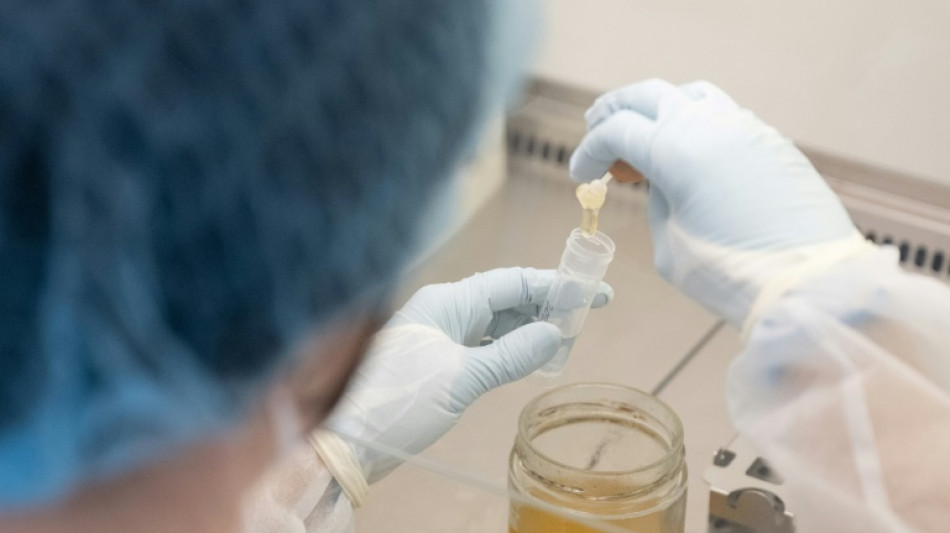
-
 Nawaz sparks Pakistan to five-wicket ODI win over West Indies
Nawaz sparks Pakistan to five-wicket ODI win over West Indies
-
Lions' Norris hospitalized after scary injury, NFL pre-season game suspended

-
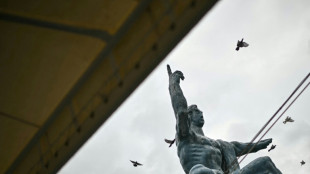 Restored Nagasaki bell rings in 80 years since A-bomb
Restored Nagasaki bell rings in 80 years since A-bomb
-
Putin-Trump summit: what we know so far
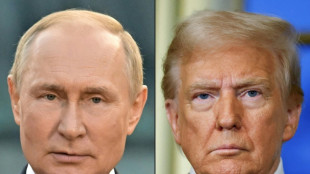
-
 Australia settle on Marsh and Head as T20 openers
Australia settle on Marsh and Head as T20 openers
-
New York declares total war on prolific rat population
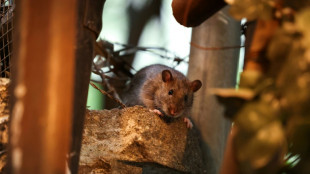
-
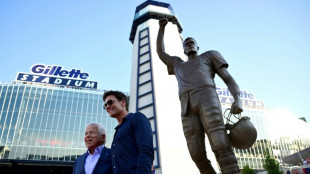 Patriots unveil statue honoring iconic quarterback Tom Brady
Patriots unveil statue honoring iconic quarterback Tom Brady
-
Slot's new-look Liverpool under the spotlight in Community Shield

-
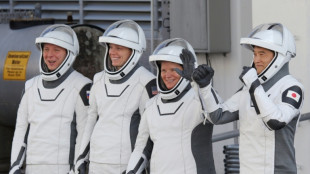 Five astronauts leave space station for trip back to Earth
Five astronauts leave space station for trip back to Earth
-
Trump and Putin to meet in Alaska next Friday
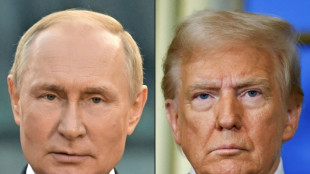
-
 NBA to open season with blockbuster showdowns: report
NBA to open season with blockbuster showdowns: report
-
Brazil's Lula vetoes parts of environmental 'devastation bill'

-
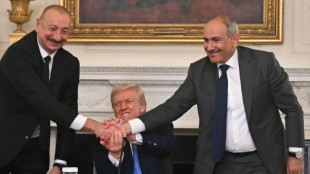 Trump says Armenia, Azerbaijan commit to end fighting 'forever'
Trump says Armenia, Azerbaijan commit to end fighting 'forever'
-
Toronto champion Shelton to start Cincy against Argentine outsider
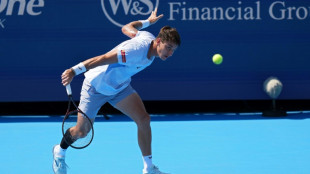
-
 US astronaut Jim Lovell, commander of Apollo 13, dead at 97
US astronaut Jim Lovell, commander of Apollo 13, dead at 97
-
Trump says to meet Putin next Friday in Alaska
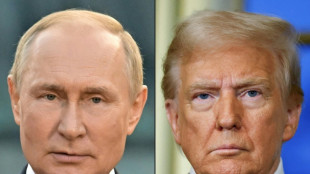
-
 Fire extinguished, historic mosque-cathedral in southern Spain 'saved'
Fire extinguished, historic mosque-cathedral in southern Spain 'saved'
-
Trump demands $1bn from University of California over UCLA protests

-
 Fire contained, historic mosque-cathedral in southern Spain 'saved'
Fire contained, historic mosque-cathedral in southern Spain 'saved'
-
US health chief based vaccine cuts on misinformation, researchers say
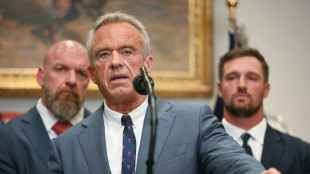
-
 US astronaut Jim Lovell, commander of imperiled Apollo 13, dead at 97
US astronaut Jim Lovell, commander of imperiled Apollo 13, dead at 97
-
Trump says will meet with Putin 'very shortly'
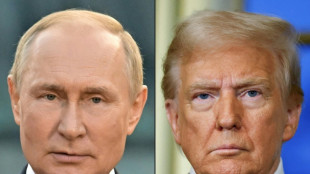
-
 Barcelona reinstate Ter Stegen as captain
Barcelona reinstate Ter Stegen as captain
-
Fleetwood leads St. Jude in search of first US PGA Tour title
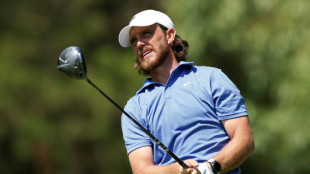
-
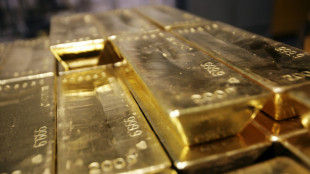 Gold futures hit record on US tariff shock; mixed day for stocks
Gold futures hit record on US tariff shock; mixed day for stocks
-
Trump says Armenia, Azerbaijan committed to end fighting 'forever'
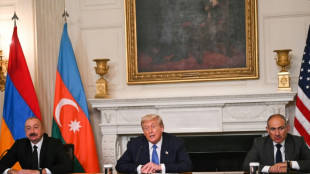
-
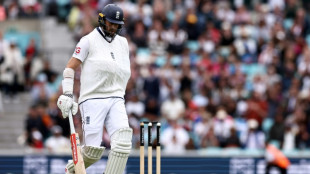 England's injured Woakes still has Ashes hopes
England's injured Woakes still has Ashes hopes
-
US astronaut Jim Lovell, Apollo 13 commander, dead at 97

-
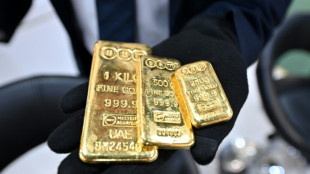 Swiss gold refining sector stung by US tariffs
Swiss gold refining sector stung by US tariffs
-
New Instagram location sharing feature sparks privacy fears
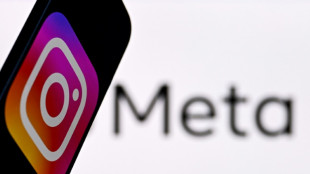
-
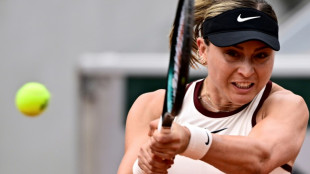 Spain's Badosa withdraws from US Open
Spain's Badosa withdraws from US Open
-
Mexico seeks compensation from Adidas in cultural appropriation row
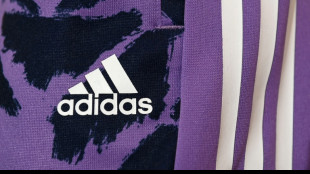
-
 NBA Celtics sign Mazzulla to coaching contract extension
NBA Celtics sign Mazzulla to coaching contract extension
-
Swiss gold refining sector hits US tariff mine
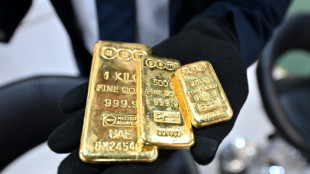
-
 Ter Stegen responds after Barcelona strips him of captaincy
Ter Stegen responds after Barcelona strips him of captaincy
-
Chelsea's Broja joins Burnley on five-year deal

-
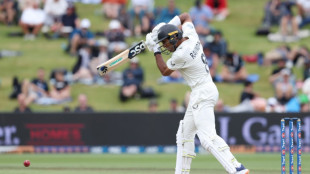 Three centurions as 'ruthless' New Zealand pile on runs against Zimbabwe
Three centurions as 'ruthless' New Zealand pile on runs against Zimbabwe
-
Three die in Greece as gales stoke fires, disrupt ferries
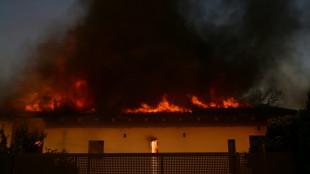
-
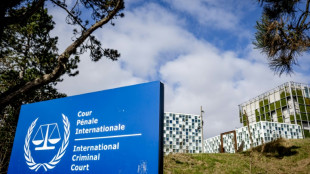 ICC unseals Libya war crimes warrant for militia officer
ICC unseals Libya war crimes warrant for militia officer
-
Montreal protagonists Mboko, Osaka out of Cincinnati Open
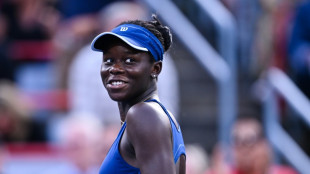
-
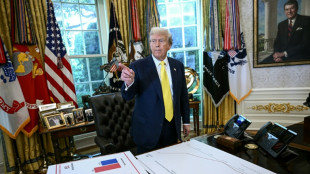 Trump says court halt of tariffs would cause 'Great Depression'
Trump says court halt of tariffs would cause 'Great Depression'
-
Glasner says demotion to Conference League would punish 'innocent' Palace

-
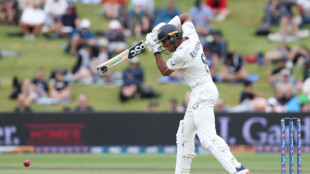 New Zealand build big total in 2nd Test against Zimbabwe
New Zealand build big total in 2nd Test against Zimbabwe
-
Trump hosts foes Armenia, Azerbaijan in his latest peace initiative
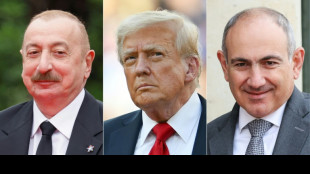
-
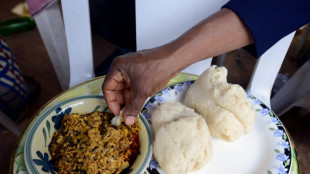 Nigerian scientists await return of Egusi seeds sent to space
Nigerian scientists await return of Egusi seeds sent to space
-
Pioneer spirit drives Swiss solar-powered plane altitude attempt
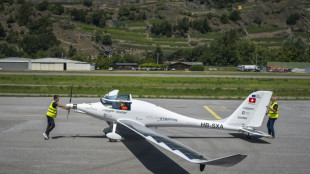
-
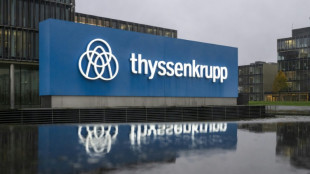 Thyssenkrupp to spin off marine division amid defence boom
Thyssenkrupp to spin off marine division amid defence boom
-
Vance and Lammy talk Gaza, fish as US VP starts UK holiday
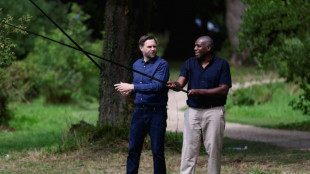
-
 Israel plans to 'take control' of Gaza City, sparking wave of criticism
Israel plans to 'take control' of Gaza City, sparking wave of criticism
-
Putin taps key allies ahead of Trump summit, sanctions deadline
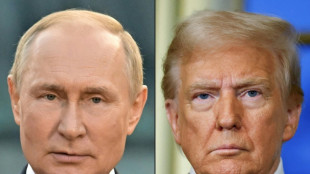
| RBGPF | 1.7% | 73.08 | $ | |
| CMSD | 0.25% | 23.58 | $ | |
| JRI | 0.19% | 13.435 | $ | |
| BCC | -1.34% | 82.09 | $ | |
| SCS | -0.76% | 15.88 | $ | |
| NGG | -1.51% | 71.01 | $ | |
| BCE | 2.34% | 24.35 | $ | |
| RIO | 1.76% | 61.86 | $ | |
| SCU | 0% | 12.72 | $ | |
| RELX | -2.2% | 48 | $ | |
| GSK | 0.58% | 37.8 | $ | |
| RYCEF | -0.14% | 14.42 | $ | |
| VOD | 0.88% | 11.36 | $ | |
| BTI | 0.96% | 57.24 | $ | |
| CMSC | 0.39% | 23.05 | $ | |
| AZN | -0.69% | 73.55 | $ | |
| BP | -0.15% | 34.14 | $ |

Austria trials DNA testing to uncover honey fraud
At a laboratory in Austria's mountainous Tyrol province, scientists are DNA testing about 100 honey samples a month to learn about their composition -- and in some cases to determine whether they have been adulterated.
With fake honey flooding markets, and only a few European laboratories running such analysis, the small Austrian company Sinsoma began offering the tests two years ago.
"It is really something new for the honey market," said Corinna Wallinger, head of sales at Sinsoma.
It is essential that technology "always moves forward -- just as the counterfeiters" do, she added.
Honey cannot have ingredients such as water or inexpensive sugar syrups -- which might boost its volume -- added to it, according to EU legislation.
But tests have shown that is common practice.
Between 2021 and 2022, 46 percent of the honey tested under an EU investigation as it entered the bloc was flagged as potentially adulterated, up from 14 percent in the 2015-17 period.
Of the suspicious consignments, 74 percent were of Chinese origin.
- Beekeepers' livelihoods threatened -
Seeking to better detect fraud, Austria's health and food safety agency (AGES) used DNA testing for the first time this year and is still evaluating the results.
European supermarket chain SPAR also ordered DNA tests for its honey.
The chain put its honeys -- taken off the shelves late last year in Austria for testing -- back after they passed DNA tests and another analysis.
Besides cheating consumers, fake honey threatens the livelihood of beekeepers, who struggle to compete with the far lower prices of imported honey -- often blended from various countries -- and are demanding more effective testing.
"We don't have a chance at all," said Matthias Kopetzky, owner of the Wiener Bezirksimkerei, which takes care of up to 350 hives in Vienna, as bees buzzed around him on a meadow overlooking the capital.
While the European Union is the world's top honey producer after China, it is also the second-biggest importer after the United States.
Most of the bloc's honey imports come from Ukraine, China and Argentina, according to EU data.
An EU directive adopted last year stipulates that honey labels from mid-2026 must detail the countries of origin, as opposed to merely referencing a "blend of EU and non-EU honeys".
Beekeepers like Kopetzky hope the new rule will raise consumer awareness.
Brussels also set up a group of experts, with a mandate until 2028, to "harmonise methods to detect adulteration in honey and trace the product back to the harvesting producer or importer".
- Rigorous process -
Austria's Sinsoma has specialised in DNA testing.
"Honey is full of DNA traces, of information from the environment where bees collected the nectar. Every honey has a unique DNA profile," Wallinger said.
When a honey sample lacks a wide range of DNA traces or for example contains a high proportion of DNA traces from rice or corn -- which bees do not frequent -- this indicates a honey is not genuine, she added.
Co-founded by Wallinger in 2018, Sinsoma now employs about a dozen people working in the small laboratory room and adjacent open office space in the quiet town of Voels near Innsbruck.
Sinsoma charges beekeepers 94 euros ($103) for a basic DNA test targeting plants -- about half of what a classic pollen test would normally cost, she said.
For the DNA profile, beekeepers also get a QR code which allows consumers to see exactly which plant species the bees making the honey have frequented, she said.
Experts warn the DNA method can detect certain types of fraud but not all, and that a rigorous process of validation is required to ensure trustworthy results.
Wallinger recognised the need for standardisation of the methods but said this will take time.
"It is always somewhat of an issue -- and this is also the case at the EU level," she said.
"If you always wait until you can use a standardised method to uncover a fake honey, then you will always be lagging behind what counterfeiters are doing."
O.Salim--SF-PST
